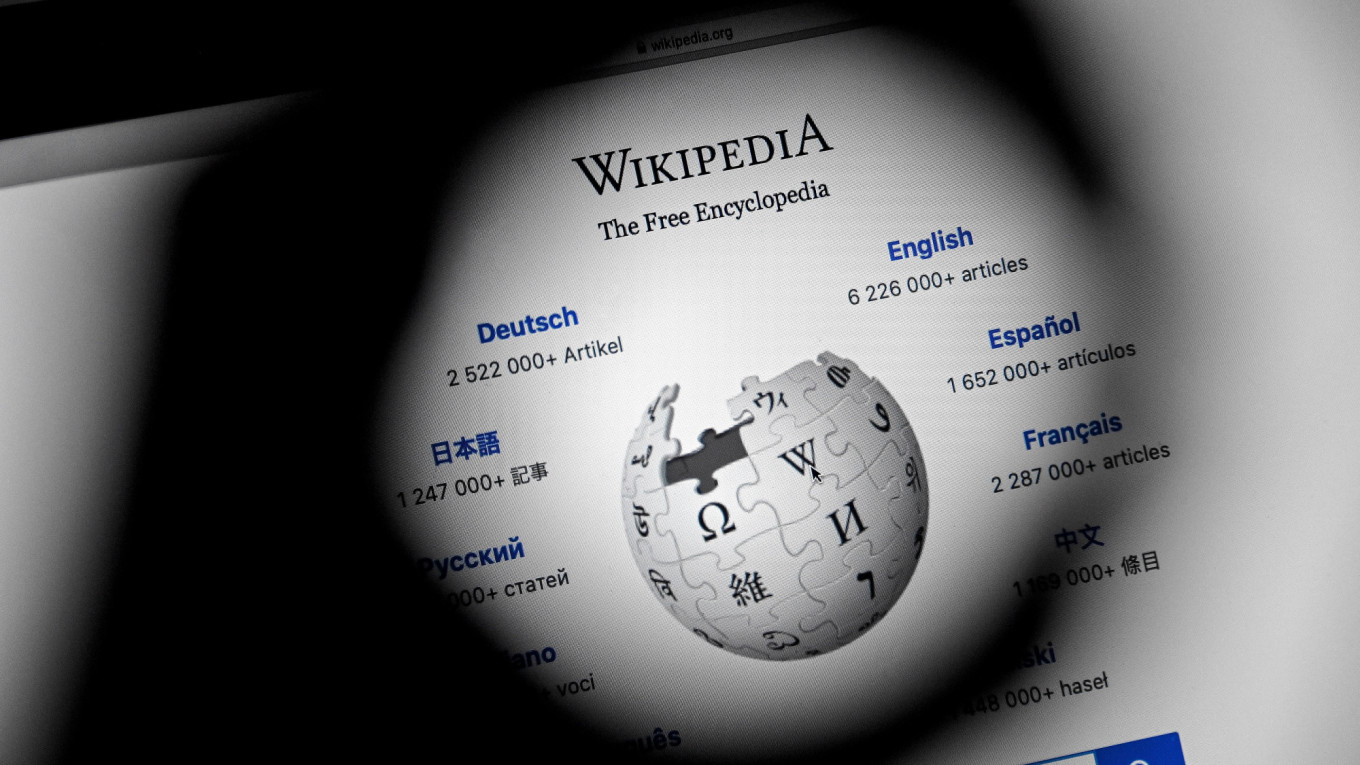Russian search engines will be required to inform Wikipedia users that the online encyclopedia spreads “fake news” about the country’s invasion of Ukraine, the state communications regulator Rozkomnadoz said Wednesday.
Roskomnadzor demanded in May that Wikipedia delete “unreliable information” about what Moscow refers to as its “special military operation” in Ukraine, entering its fifth month.
“Due to the American nonprofit organization Wikimedia Foundation, Inc.’s failure to remove illegal information, Roskomnadzor decided to apply a coercive measure of internet search engines informing [users] that the foreign entity violates Russian legislation,” it said in a statement.
Russia’s Kremlin-friendly Safe Internet League said this week it has uncovered 16.6 million messages spreading “fakes” about Russia’s invasion of Ukraine on platforms including Wikipedia.
“This happens on YouTube, Twitch, TikTok and Wikipedia,” said the nonprofit’s head, Yekaterina Mizulina, daughter of prominent conservative Russian senator Yelena Mizulina.
“Children go in to watch harmless videos and they’re met with a barrage of videos with violence and cruelty, fakes about the special operation, flat out lies about our country,” Yekaterina Mizulina said. “This kind of content is dangerous for children’s psyche.”
Russian officials have long sought to develop a domestic alternative to Wikipedia over what they deemed to be bias by the online encyclopedia.
Concerns that Russia could block Wikipedia have grown amid the country's unprecedented crackdown on dissent to its invasion of Ukraine.
The Wikimedia Foundation nonprofit has been fined a total of 5 million rubles ($91,000) by Russia since the invasion started on Feb. 24.
Wikipedia remains accessible within Russia 10 years after it was added to a government registry of prohibited websites.
A Message from The Moscow Times:
Dear readers,
We are facing unprecedented challenges. Russia's Prosecutor General's Office has designated The Moscow Times as an "undesirable" organization, criminalizing our work and putting our staff at risk of prosecution. This follows our earlier unjust labeling as a "foreign agent."
These actions are direct attempts to silence independent journalism in Russia. The authorities claim our work "discredits the decisions of the Russian leadership." We see things differently: we strive to provide accurate, unbiased reporting on Russia.
We, the journalists of The Moscow Times, refuse to be silenced. But to continue our work, we need your help.
Your support, no matter how small, makes a world of difference. If you can, please support us monthly starting from just $2. It's quick to set up, and every contribution makes a significant impact.
By supporting The Moscow Times, you're defending open, independent journalism in the face of repression. Thank you for standing with us.
Remind me later.






